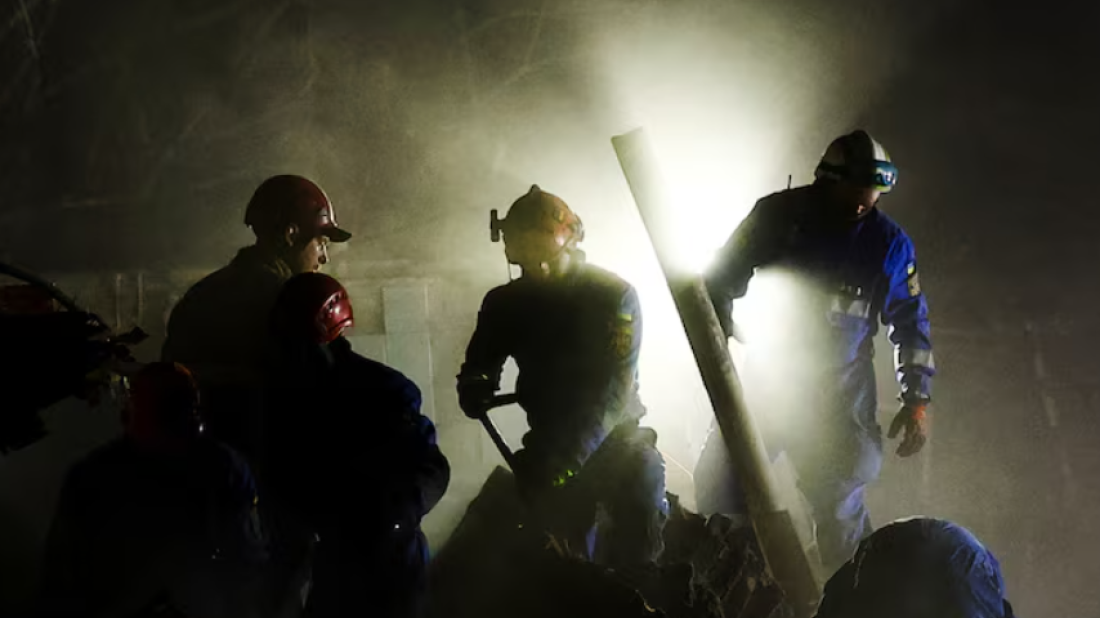Georgia strengthens Armenia ties to secure transit role and support South Caucasus connectivity
Georgia is increasing its focus on regional connectivity and infrastructure cooperation with Armenia, as competition over new transport routes and cha...

U.S. officials have completed work on a fresh package of economic sanctions targeting Russia’s energy and banking sectors, aiming to ramp up pressure on Moscow to support President Donald Trump’s stalled peace initiative in Ukraine, according to multiple officials familiar with the matter.
U.S. officials have finalized new economic sanctions against Russia, including banking and energy measures, to intensify pressure on Moscow to embrace U.S. President Donald Trump’s efforts to end its war on Ukraine, according to three U.S. officials and a source familiar with the issue.
The targets include state-owned Russian energy giant Gazprom and major entities involved in the natural resources and banking sectors, said an administration official, who like the other sources requested anonymity to discuss the issue. The official provided no further details.
It was far from clear, however, whether the package will be approved by Trump, whose sympathy for Moscow's statements and actions have given way to frustration with Russian President Vladimir Putin’s spurning of his calls for a ceasefire and peace talks.
The U.S. National Security Council “is trying to coordinate some set of more punitive actions against Russia,” said the source familiar with the issue. “This will have to be signed off by Trump.”
“It’s totally his call,” confirmed a second U.S. official.
“From the beginning, the president has been clear about his commitment to achieving a full and comprehensive ceasefire," said National Security Council Spokesman James Hewitt. "We do not comment on the details of ongoing negotiations.”
The U.S. Treasury, which implements most U.S. sanctions, did not respond to a request for comment.
An approval by Trump of new sanctions, which would follow the Wednesday signing of a U.S.-Ukraine minerals deal that he heavily promoted as part of his peace effort, could signify a hardening of his stance towards the Kremlin.
Since Russia launched its full-scale invasion of Ukraine in 2022 the United States and its allies have added layer upon layer of sanctions on the country. While the measures have been painful for Russia's economy, Moscow has found ways to circumvent the sanctions and continue funding its war.
Trump "has been bending over backwards to give Putin every opportunity to say, 'Okay, we're going to have a ceasefire and an end to the war,' and Putin keeps rejecting him," said Kurt Volker, a former U.S. envoy to NATO who was U.S. special representative for Ukraine negotiations during Trump's first term. "This is the next phase of putting some pressure on Russia."
"Putin has been escalating," he continued. Trump "has got the U.S. and Ukraine now in alignment calling for an immediate and full ceasefire, and Putin is now the outlier."
Since assuming office in January, Trump has taken steps seen as aimed at boosting Russian acceptance of his peace effort, including disbanding a Justice Department task force formed to enforce sanctions and target oligarchs close to the Kremlin.
He also has made pro-Moscow statements, falsely blaming Ukrainian President Volodymyr Zelenskiy for starting the conflict and calling him a "dictator."
Meanwhile, Steve Witkoff, Trump’s special envoy, has advocated a peace strategy that would cede four Ukrainian regions to Moscow, and has met Putin four times, most recently last week.
But three days after that meeting, Russian Foreign Minister Sergei Lavrov reiterated Putin's maximalist demands for a settlement and Moscow’s forces have pressed frontline attacks and missile and drone strikes on Ukrainian cities, claiming more civilian casualties.
A seven-month-old Japanese macaque has drawn international attention after forming an unusual bond with a stuffed orangutan toy after being rejected by its mother.
Divers have recovered the bodies of seven Chinese tourists and a Russian driver after their minibus broke through the ice of on Lake Baikal in Russia, authorities said.
Pakistan said it carried out cross-border strikes on militant targets inside Afghanistan after blaming a series of recent suicide bombings, including attacks during the holy month of Ramadan, on fighters it said were operating from Afghan territory.
Italy said a fond farewell to the Winter Olympics on Sunday with an open-air ceremony in the ancient Verona Arena that celebrated art and sporting achievement at a Games lauded as a model for how to stage such events.
Ukraine’s President Volodymyr Zelenskyy has approved new sanctions targeting Russian maritime operators, defence-linked companies and individuals connected to Moscow’s military and energy sectors, according to official decrees issued on Saturday.
The United Nations mission in Afghanistan said on Monday it had received “credible reports” that at least 13 civilians were killed and seven others injured in overnight Pakistani airstrikes inside Afghanistan.
The former British ambassador to the U.S. Peter Mandelson has been arrested by police in London on suspicion of misconduct in public office.
At least 25 members of Mexico's National Guard have died during a wave of violence in the state of Jalisco after the killing of a drug lord, the country's security minister has said.
The European Parliament on Monday (23 February) postponed a vote on the EU’s trade deal with the U.S. after President Donald Trump imposed a blanket 15% import duty.
The U.S. Supreme Court has overturned key elements of President Donald Trump’s global tariff policy, creating uncertainty ahead of his March meeting with China’s Xi Jinping. The ruling raises fresh questions about the future of U.S.-China trade relations and the stability of the global economy.
You can download the AnewZ application from Play Store and the App Store.

What is your opinion on this topic?
Leave the first comment